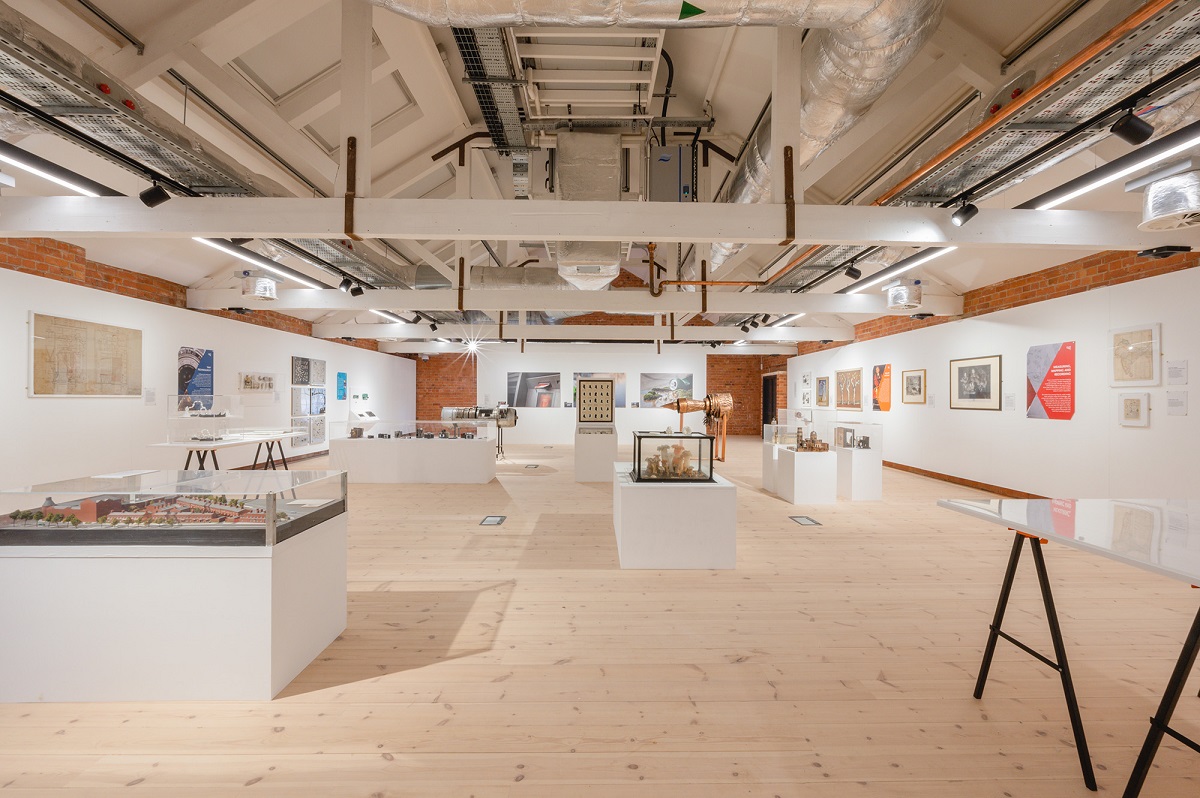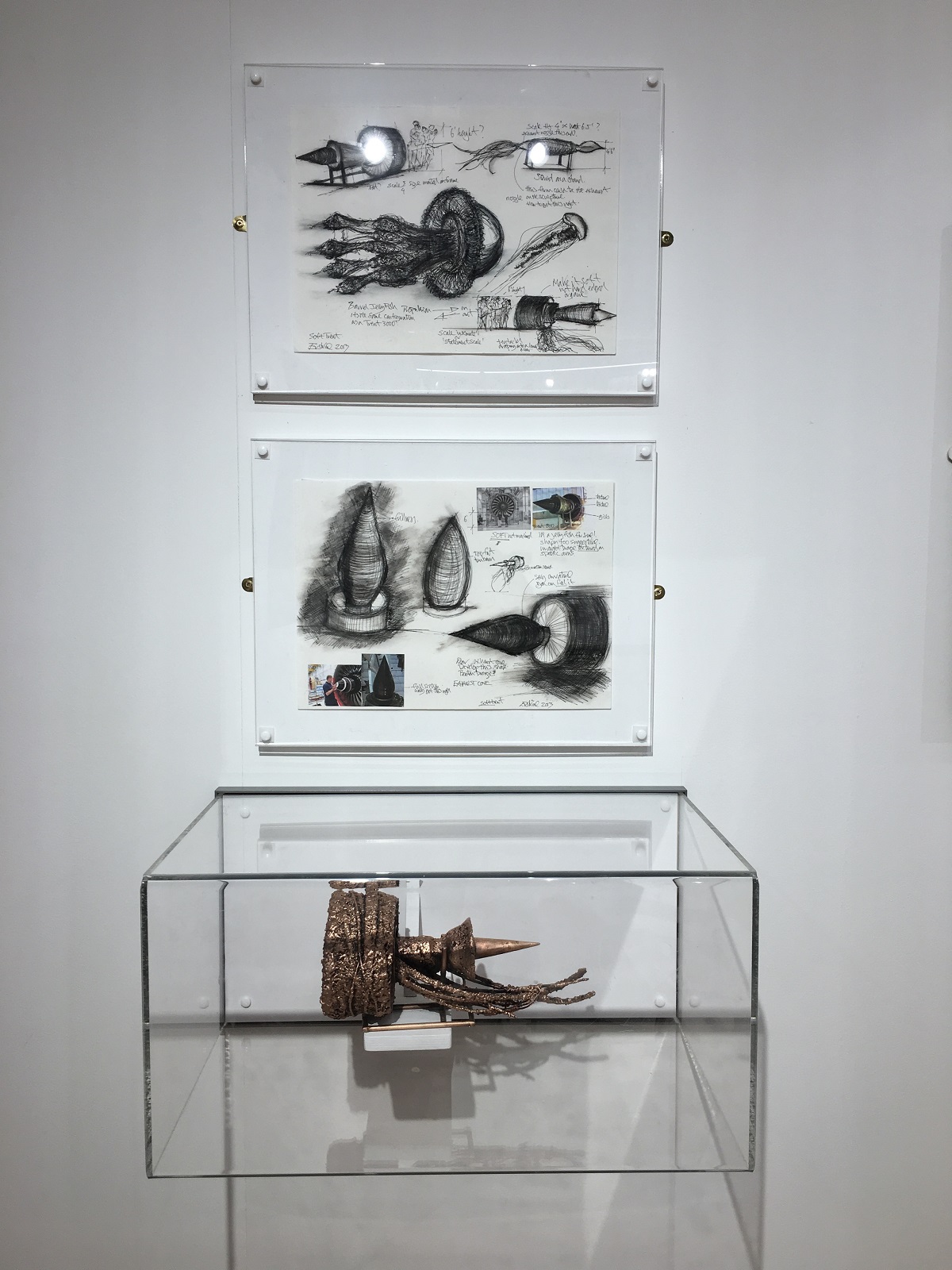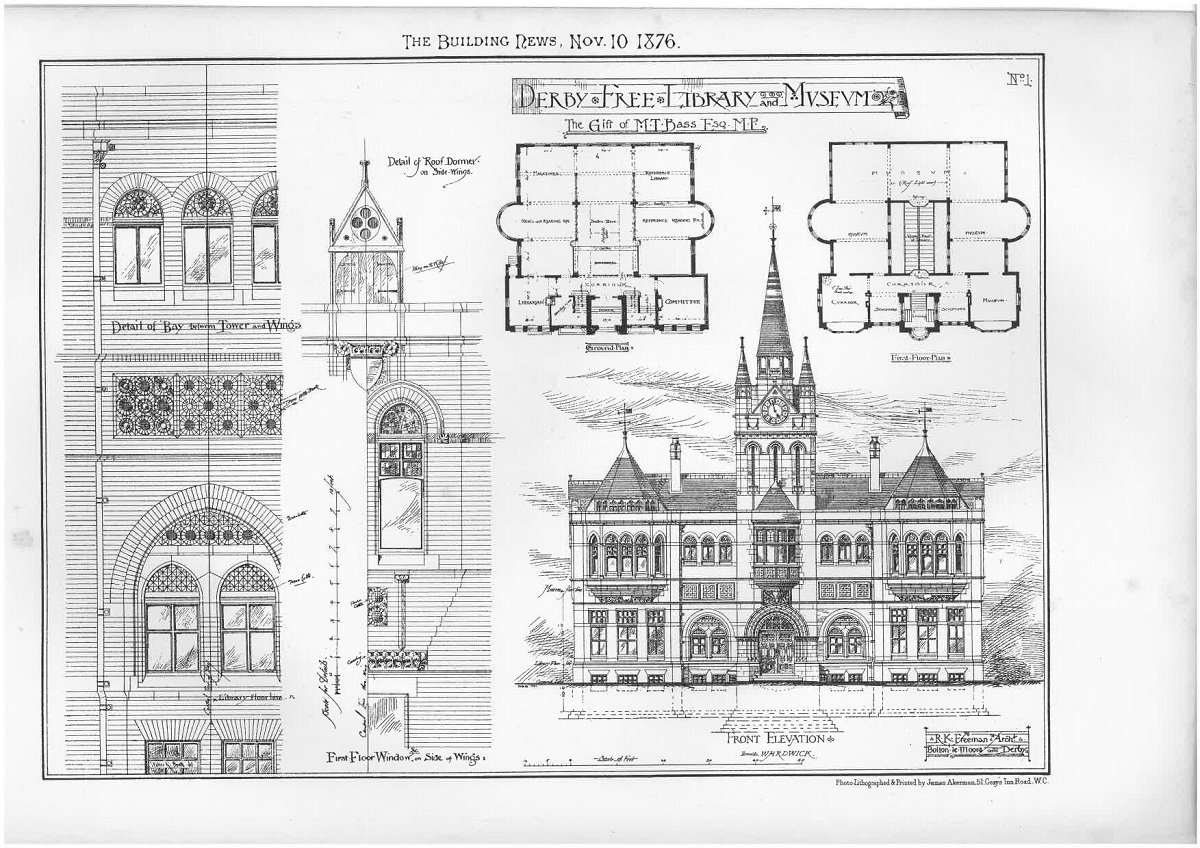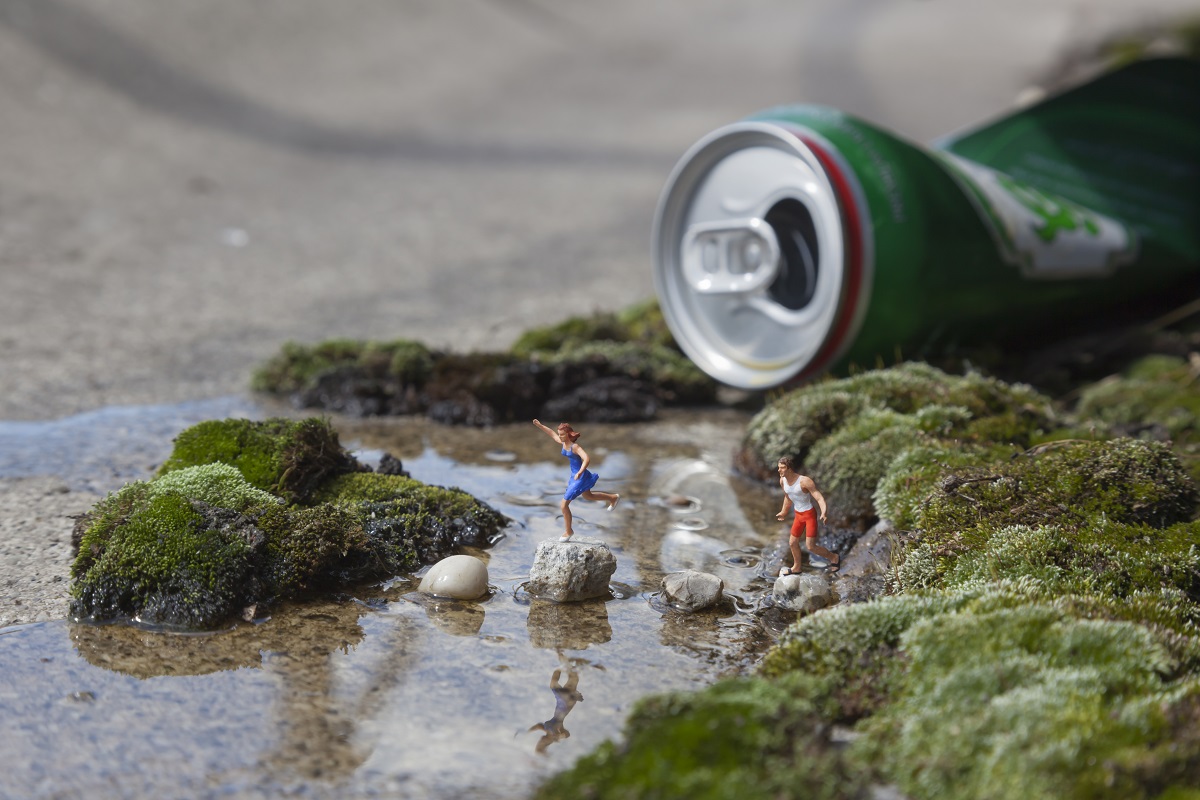After a major redesign, the Museum of Making relaunched in May 2021, celebrating 300 years of manufacture and making in Derby. A new exhibition space presents contemporary perspectives on the museum’s historical collection
Derby Silk Mills, a UNESCO World Heritage Site is renowned as the world’s first modern factory, which used waterpower in the 1700s to spin cotton and silk. Themes of innovation, industry and manufacturing are celebrated throughout this impressive, newly converted museum.

The temporary exhibition programme aims to reframe objects from the museum’s collection by placing them alongside contemporary works which respond to themes inspired by the former mill. The inaugural exhibition, Scale, reminds us of how techniques of scale have been used through the ages, referencing the scale of the mill’s operation at its peak. The show investigates how technology has influenced and developed the way upscaling and downscaling have been used to enhance processes and productivity, with often revolutionary results. The exhibition showcases Derby’s industrial past, with examples such as Rolls-Royce’s cheap and lightweight Soar engine, presented in several versions of prototypes which experiment with different power-to-weight ratios.

Photographic prints by street artist Slinkachu are presented, among the artifacts, at the centre of the space. These staged miniature scenes are set in public spaces, skewing scale, focus and perspective. The scenes depict a miniature environment within a larger environment, amplifying surroundings which are so often overlooked. These images share the space with machinery and representations of technological advances, questioning the value of human existence in a world of fast-paced development. It’s work that invites you to stop, look closer and appreciate the small things in life. Slinkachu has made these mini settlements around the world, left permanently for people to discover. These scenes endure, isolated from human contact, creating a fairy-like underworld beneath our feet.

The exhibition’s The Art of Scale segment looks at the challenges facing an artist developing their craft. Scale, as an artist’s tool, creates exact proportions for ‘true to life’ representations; without scale, we end up with distortion.During the 1760s, Derby artist Joseph Wright, who trained as a painter, collaborated with his friend Peter Perez Burdett, a mapmaker and artist. Burdett taught Wright new techniques to provide a more accurate scale for his drawings, using inches to indicate the vanishing point – evident in Burdett’s Study for the Captive King, with the fragment of a letter (c.1772). This more scientific or mathematical approach to art underpins the exhibition’s interest in how making and creative thinking is a crucial element in artistic and technological change and innovation. Many of the models in the exhibition were made by hand, while the blueprints, maps and archaeological drawings are beautiful documents, both practically and aesthetically, making you appreciate the process as well as the outcome.
Scale is a welcome exploration of history, shedding light on the significance and relevance of how method and process often go unnoticed and how the industrial past has influenced and progressed technology and impacted our live to this day.
Scale is at Museum of Making, Derby, until 28 November
This article is part of Remark, a new platform for art writing in the East Midlands by ArtReview in collaboration with BACKLIT. Read more here and sign up for the Remark newsletter here
